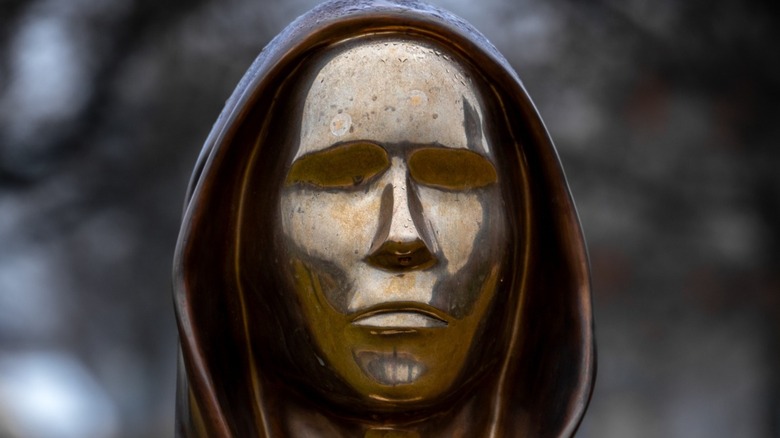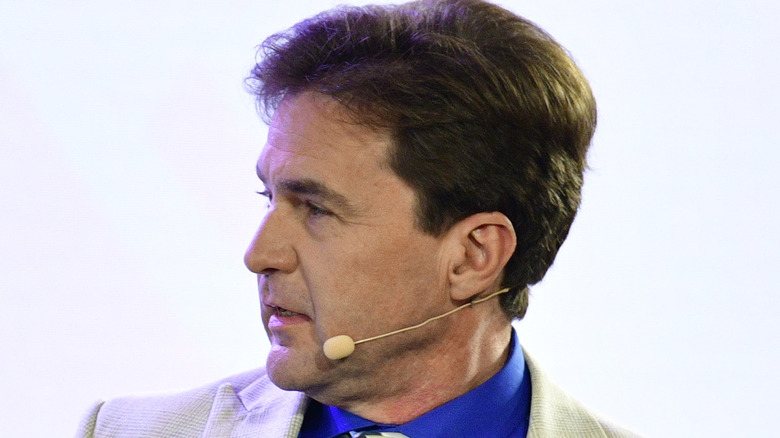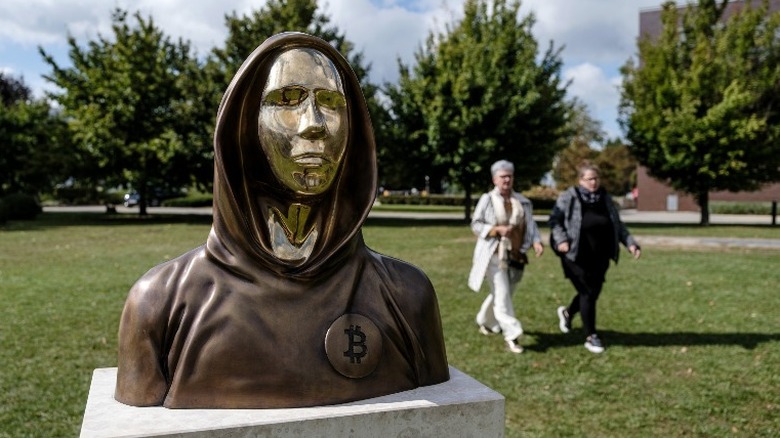Why Nobody Knows Who Created Bitcoin
For years, many have been debating the true identity of Bitcoin's credited inventor: Satoshi Nakamoto. In 2008, the website bitcoin.org went online, and after two months, it unveiled a whitepaper detailing the concept behind a peer-to-peer electronic cash system (via Business Insider). This document also contained the name of its author, Satoshi Nakamoto, leading most to believe that he was the one and only individual human person responsible for creating the most popular cryptocurrency today. While there are undoubtedly a lot of people in the world who go by that name, there is at least one who was linked to Bitcoin based on his distinct set of skills and background.
This is where Dorian Satoshi Nakamoto comes into the picture. Dorian is an elderly Japanese-American man living in Temple City, California. According to Newsweek, Dorian used to be a computer engineer with a knack for numbers and mathematics and also happened to be quite a surreptitious figure, even to his own family. This might make him a possible candidate for the person who invented Bitcoin. That is, until Dorian flat-out denied all allegations, stating he had nothing to do with the tech. In fact, Dorian wrote a statement to "clear" his name, claiming the allegations have dealt him "a great deal of confusion and stress."
Claimed but not proven
Despite being immortalized in memes as the face behind bitcoin, Dorian admitted to not having any knowledge of the tech required to create a cryptocurrency in the first place. Sure, his name might've checked out, but that doesn't mean the one who made Bitcoin had to literally go by the name Satoshi Nakamoto. Anyone could've used the name as a pseudonym.
One person who did indeed claim to use the name as a pseudonym was Craig Wright (pictured above), also claiming to be the actual creator of Bitcoin in the process (via New York Post). Wright, an Australian computer scientist, tried proving his claims by attempting to cash out coins using private keys only the real Satoshi Nakamoto would have had access to.
At one point, Wright even managed to convince Bitcoin developer Gavin Andresen, someone who was personally handpicked by Nakomoto to work on the cryptocurrency. However, before Wright was able to show his "proof of access," he backed out due to a possible "security flaw" that he alleged could've exposed him to "exploitation and theft." The computer scientist explained he simply "broke" and that he did "not have the courage" to do so.
This lack of evidence left doubts on Andresen's mind, who has since expressed the notion that perhaps Nakamoto was hacked instead, losing his private keys in the process. Furthermore, there's also evidence refuting the legitimacy of Wright's so-called private keys, whose ownership could very well be claimed by just about anyone, according to Cointelegraph.
Bitcoin's many-faced creator
There are various theories regarding Satoshi Nakamoto's identity, with some speculating that he's not just one person, but multiple entities hiding behind a single name. Musk posted a tweet about an old theory suggesting Satoshi Nakamoto's an amalgamation of tech companies Samsung, Toshiba, Nakamichi, and Motorola. While there's little evidence supporting that theory, Musk also voiced suspicion of another candidate: cryptographer and computer scientist Nick Szabo (pictured above). Insider previously reported how Musk felt towards Szabo being responsible for Bitcoin "more than anyone else," even crediting his past ideas as influencing the foundational concept of Bitcoin.
Musk wasn't alone in making that comparison either, as researchers described the similarities between Szabo's writing style and Nakamoto's bitcoin whitepaper to be "uncanny." Furthermore, Szabo made a cryptocurrency called "bit gold" over a decade prior to Bitcoin's creation. Despite being among its pioneers, the cryptographer still consistently denied being the person who made Bitcoin on multiple occasions.
Does Satoshi Nakamoto exist at all?
Denials were also made by game developer Hal Finney, another suspected creator of Bitcoin and one of the cryptocurrency's earliest publicly vocal supporters. Analysis by Juola & Associates on behalf of Forbes seemed to suggest that Finney might very well have been a ghostwriter for Satoshi Nakamoto's whitepaper. Not only did Finney live close to Dorian Nakamoto, but he was also the first to use Bitcoin next to its creator. However, Finney's email exchange with the supposed "real" Nakamoto reveals that, while he was responsible for its development, he probably didn't write the now-famous whitepaper. His son, Jason Finney, said his father was "an honest guy," that he "would have loved" being part of Bitcoin's creation, and that if it were so, he "wouldn't have hidden it."
Before Finney passed away in 2014, he insisted that he still doesn't know the identity of bitcoin's creator, according to Business Insider. Perhaps Musk was right all along when he spoke on computer scientist Lex Fridman's podcast, suggesting that there's little significance in trying to unearth Bitcoin's originator.
After all, Bitcoin's legacy doesn't have to be tied to a name, but rather, it lies within its future potential and application. There's a good reason the statue of Satoshi erected in Budapest, Hungary, came with neutral features, as it's supposed to represent the average person. While the search continues for Bitcoin's original creator, the possibility remains that the anonymity of Satoshi Nakamoto was part of a long-term plan from the beginning, aiming to keep the focus on those that hold and use Bitcoin, rather than its originator.



